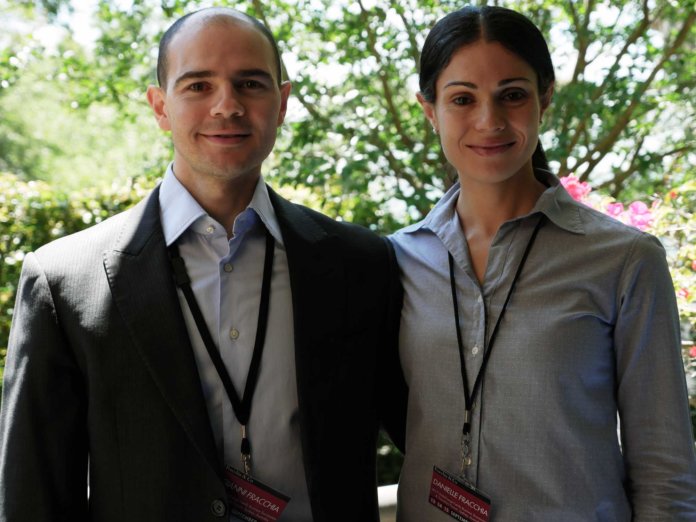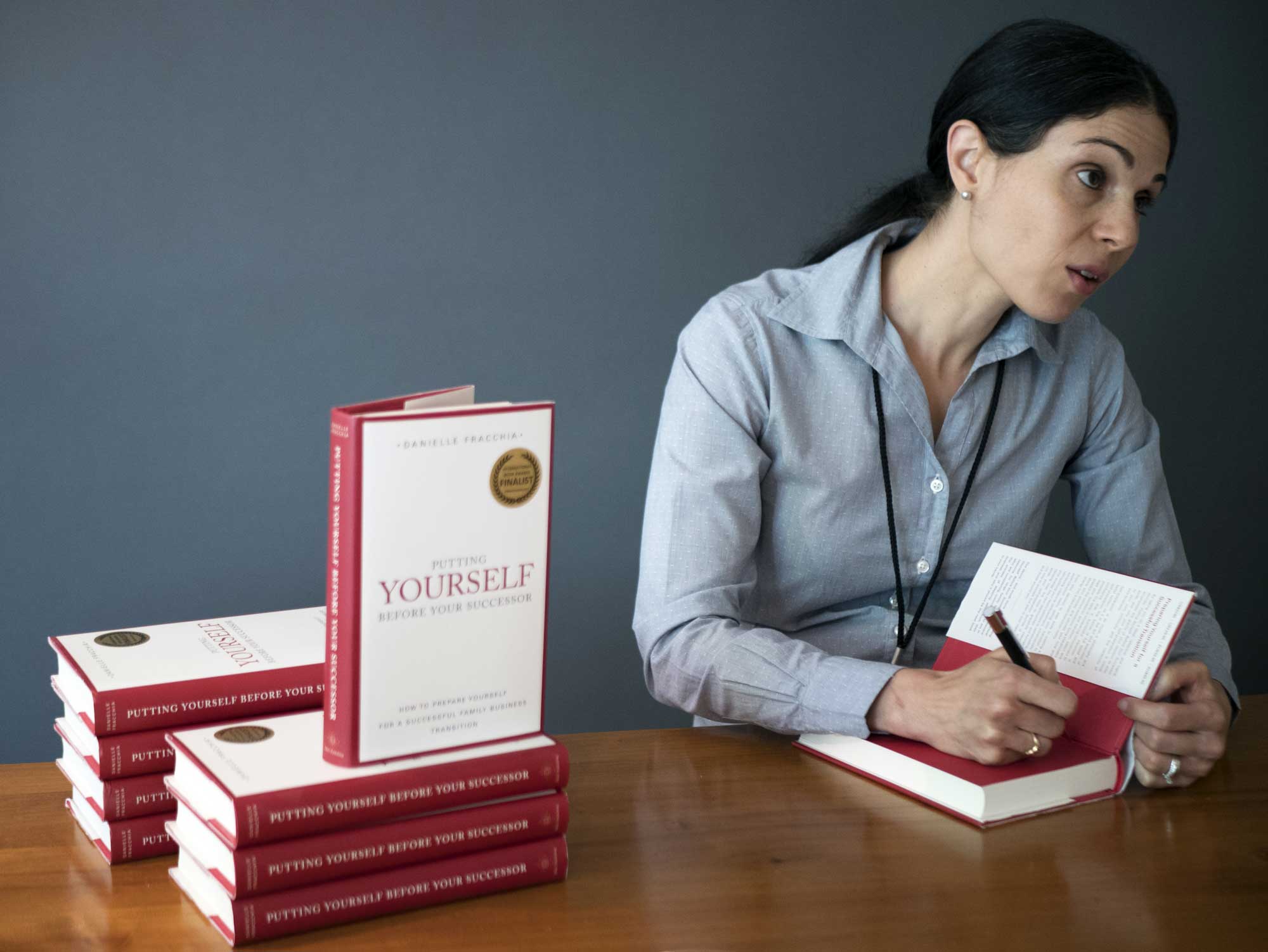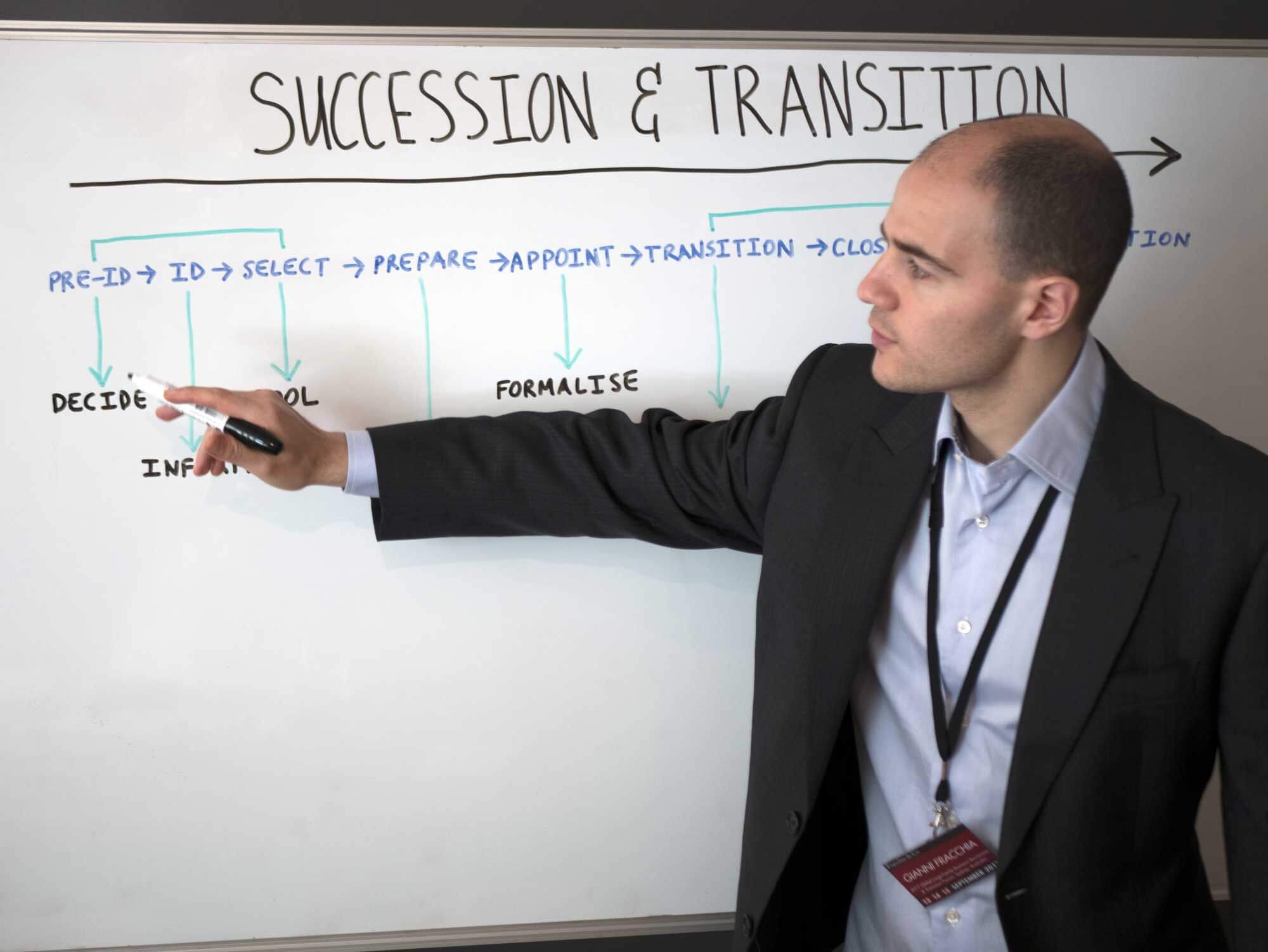
Interview with Gianni Fracchia, Co-Founder of Fracchia & Co., Australia
Running a family business, be it large or small, is an all-encompassing effort. There are no sick days, no sense of leaving it all at the office at 5:00 pm when you punch out for the day. Because of this, it is very easy for the role of CEO to become less of a job title and more of one’s sense of identity.
But who do you become when it’s time to hand over the reins to the next generation?
That very question is the driving force behind an Australian husband and wife team who consult with and guide large family business owners. Gianni and Danielle Fracchia are Founders of Fracchia & Co., a discreet family cohesion and early-stage succession consultancy firm. Their expertise is in working with affluent parents and couples, and large family business owners across two areas: (1) building a cohesive family unit and (2) early stage succession planning.
Danielle recently published a book titled, Putting Yourself Before Your Successor, and together, they launched the inaugural Global Large Family Business Succession & Transition Forum. Here, 48 outgoing CEO’s gathered to discuss issues, fears, and concerns that only their peers could understand and relate to.
Recently, Tharawat Magazine had the opportunity to sit down with Gianni to discuss the tricky prospect of family business succession and the future of Fracchia and Co.
Perhaps we could start with a brief account of how Fracchia & Co. came to be. When was it officially established?
Fracchia & Co. was incorporated this year. But Danielle had a company before, Life Capability Institute, which she was running for several years. Fracchia & Co. is a convergence of our complementary skill sets. Danielle on the soft-skill side, and me on the hard-skill side. Also, she published a book in March of this year, Putting Yourself Before Your Successor. It is a deep-dive into the whole succession process and the depth of what is really going on emotionally and psychologically. It examines what is really required to prepare yourself to step aside. When you’re no longer the CEO, you’re no longer the boss of the organization, the entity that you’ve been running for decades. As such, the emotions are real and you feel it. The book itself draws on a lot of client experiences, a lot of case studies, so it’s not theoretical per se. It’s very pragmatic and action-oriented. Sometimes people wonder what’s really going on in a family business and why it’s different from other businesses. You’ve got to deal with the dynamics of family relationships and you really have to understand what’s going on. Family businesses are fundamentally different.
Tell us more about your annual family business survey.
This is the second time we’ve conducted the survey, The Future Of Family Businesses. When we were looking at the findings a lot of trends started to emerge. The biggest thing that became apparent was the lack of preparation for the succession process. It wasn’t always explicit, but there were underlying comments and statements such as: “I’m kind of anxious about what I’m going to do. I don’t know what my child’s going to do. I’m not even sure if my child is the right one to do it.” There is a lot of guilt attached to comments and statements like these, and resentment as well. For example, “My child doesn’t understand or appreciate what I’m doing. They just don’t get it. I provide for them but they just don’t get it.” It’s all of these emotions and all of these different views and perspectives of the succession and transition experience. There is no such thing as an objective reality because it’s the way the one stepping aside perceives it. The survey highlights these issues and the book touches on these dilemmas.

How did this then lead to the family business forum that you held in September?
When the book was released in March of this year we received a lot of feedback, emails, and phone calls saying, “This stuff is great but how do we take it to the next level? I want to meet other people who are experiencing the same thing as me.” Danielle and I sat down and started planning the forum. The agenda built on the book itself, but in a much deeper way. Forum attendees were strictly the senior generation, the one stepping aside. So there were no successors and no spouses present. It was 48 people in a room all going through the same journey in one way or another, and at varying stages of their succession. It was a really rich experience for them, for all of us.
During the event and these discussions, what were the greatest surprises to you?
I would say what took us by surprise more than anything else was the hidden resentment which attendees articulated towards their successor or child. That’s a big one, definitely. The other one would be their doubts as to whether or not their successor is the right person to take over the business.
How would you explain the hidden resentment? Were any factors identified that were clear causes for these feelings?
The resentment, interestingly enough, was not just limited to the successor. Similar resentment existed with the spouse as well. Because again, not understanding the sacrifices the current head of the family business makes in order to do what they do and provide for the family. A lot of this is taken for granted. But I just want to talk again about perceptions versus reality. It’s not that there’s a right or wrong here. The point is that this is the way they’re seeing the world and that is what matters. The resentment is real to them whether or not someone else sees it as valid or not. The validity of this resentment is completely irrelevant to those around them. The biggest issue in regards to resentment towards the successor is the lack of appreciation for what is required to build and sustain the business. The point is, resentment does exist, and there is so much energy behind it just like a volcano that’s going to erupt. The forum gave attendees a lot of ways to channel this energy and to discuss it in an open non-judgmental environment.
One of the key outcomes that you’ve highlighted is that there’s a fundamental shift in mindset that is required to embrace succession planning and transition and see it as a process instead of an event. This then begs the question – the mindset of whom needs to shift?
The key point is that succession doesn’t just stop once the successor assumes their role. Normally people just see the process as identifying the successor, recruiting them, appointing them, putting them in the role, and that’s it. But after the transition, What do you do as the one who has handed over the reins? What do you do when you don’t go to the office anymore? Fundamental to this is understanding and embracing that the world does change for you. Relationships change for you, power dynamics change. You’re not the boss anymore, your son or daughter is the boss now. For the successor, I think this is equally important because if you look at much of the younger generation today, it’s all about immediacy and instant gratification. But first, you have to develop the capabilities. And in some ways, you have to prove yourself to those around you that you’re fit and ready for the position.

What is the future of the forum?
We’re booked out for the next six months with consulting engagements alone. So it could be a couple of larger forums, or perhaps half a dozen smaller ones. It really comes down to the question of “Are we providing more value one-on-one or do we provide more value one-to-many?” Conversations like the one we’re having now enable us to reach thousands of people at once. This is something you can’t achieve one-on-one. So these organic discussions are helpful, and the Tharawat podcast as a medium obviously enables and facilitates this expanded reach.
Do you have one parting piece of advice for people going through family business succession?
Fundamentally it comes down to the Core. You have to have a cohesive family unit. You have to have everyone on the same page. You have to have communication, transparency, clarity, resilience, and respect. Working on this may be painful, it may be uncomfortable, but it is so liberating and in the end it’s really worth it. Ultimately, do what you have to do to make things work, because at the end of the day family is all that we’ve got. Family is all that matters!









